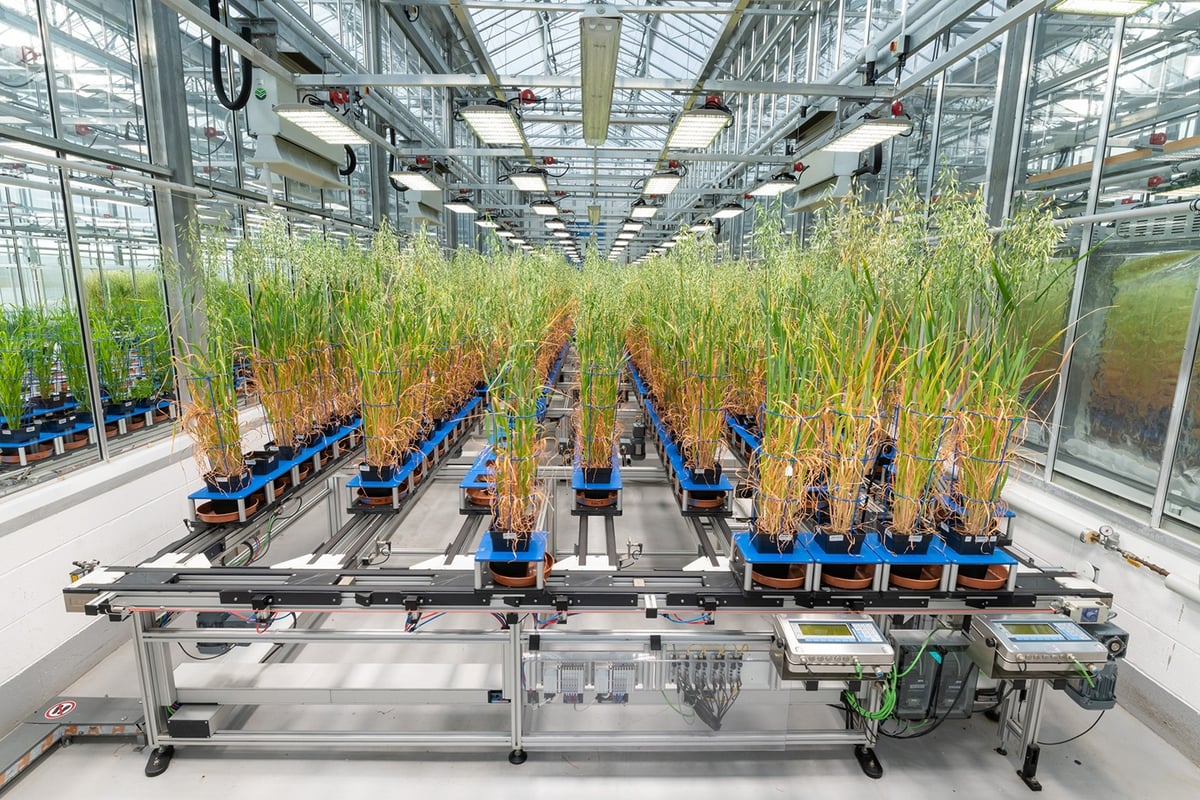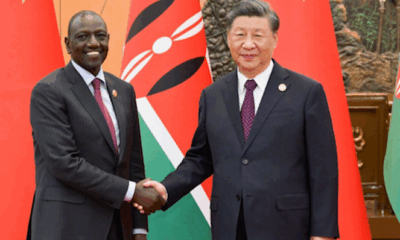Science
AI and Biotechnology Set to Revolutionize Global Crop Production

A comprehensive review published in the journal Nature has unveiled significant potential for artificial intelligence (AI) and biotechnology to transform global crop production. Coordinated by an international team of researchers, including experts from Aberystwyth University, the study outlines strategies to strengthen food systems against the challenges posed by climate change, pests, and a growing population.
The collaborative research team, which encompasses scientists from China, the USA, and various countries in Europe, has proposed a systematic approach to integrate AI with advanced techniques such as genome editing, protein design, high-throughput phenotyping, and omics technologies. These methods facilitate an in-depth analysis of the genetic and chemical profiles of plants, offering a pathway to develop crops that are not only more productive but also sustainable and resilient to climate challenges.
Professor John Doonan, Director of the National Plant Phenomics Centre at Aberystwyth University’s Institute of Biological, Environmental and Rural Sciences (IBERS), emphasized the transformative nature of these tools. He stated, “Think of it like designing and building a bridge. We now have the tools to engineer crops with similar precision — combining biological insights with AI to build plants that can withstand drought, disease, and other stresses.”
Innovative Techniques for Sustainable Farming
The review highlights several innovative applications of AI in agriculture. Researchers assert that AI can effectively predict optimal gene combinations for enhanced yield, nutritional content, and stress tolerance. Additionally, it can facilitate the design of novel proteins that bolster plant defenses and improve overall performance. By integrating complex datasets, AI can also enable faster and more informed breeding decisions.
Professor Doonan further underscored the importance of building resilience into crops, stating, “This is about building resilience into our crops from the ground up. By uniting AI with cutting-edge biotechnology and sustainable farming practices, we can future-proof food production for generations to come.”
The work aligns with IBERS’ strategic focus on developing resilient crops and has received backing from the Biotechnology and Biological Sciences Research Council (BBSRC) through its Resilient Crops programme, as well as support from the Engineering and Physical Sciences Research Council (EPSRC) as part of its AI for Net Zero initiative.
The implications of this research are far-reaching. As global food demands intensify, leveraging AI and biotechnology could play a crucial role in addressing food security challenges. The review serves as a significant step towards integrating these advanced technologies into agricultural practices, paving the way for a more sustainable future.
The full review was published last week in Nature, marking a pivotal moment in the ongoing discourse about the intersection of technology and agriculture. As the world grapples with environmental changes and population growth, the fusion of AI with biotechnology presents a promising avenue for creating resilient agricultural systems that can adapt to an evolving landscape.
-

 Entertainment3 months ago
Entertainment3 months agoAnn Ming Reflects on ITV’s ‘I Fought the Law’ Drama
-

 Entertainment4 months ago
Entertainment4 months agoKate Garraway Sells £2 Million Home Amid Financial Struggles
-

 Health3 months ago
Health3 months agoKatie Price Faces New Health Concerns After Cancer Symptoms Resurface
-

 Entertainment3 months ago
Entertainment3 months agoCoronation Street’s Carl Webster Faces Trouble with New Affairs
-

 Entertainment3 months ago
Entertainment3 months agoWhere is Tinder Swindler Simon Leviev? Latest Updates Revealed
-

 Entertainment4 months ago
Entertainment4 months agoMarkiplier Addresses AI Controversy During Livestream Response
-

 World2 weeks ago
World2 weeks agoBailey Announces Heartbreaking Split from Rebecca After Reunion
-

 Science1 month ago
Science1 month agoBrian Cox Addresses Claims of Alien Probe in 3I/ATLAS Discovery
-

 Health4 months ago
Health4 months agoCarol Vorderman Reflects on Health Scare and Family Support
-

 Entertainment4 months ago
Entertainment4 months agoKim Cattrall Posts Cryptic Message After HBO’s Sequel Cancellation
-

 Entertainment2 weeks ago
Entertainment2 weeks agoCoronation Street Fans React as Todd Faces Heartbreaking Choice
-

 Entertainment3 months ago
Entertainment3 months agoOlivia Attwood Opens Up About Fallout with Former Best Friend





















